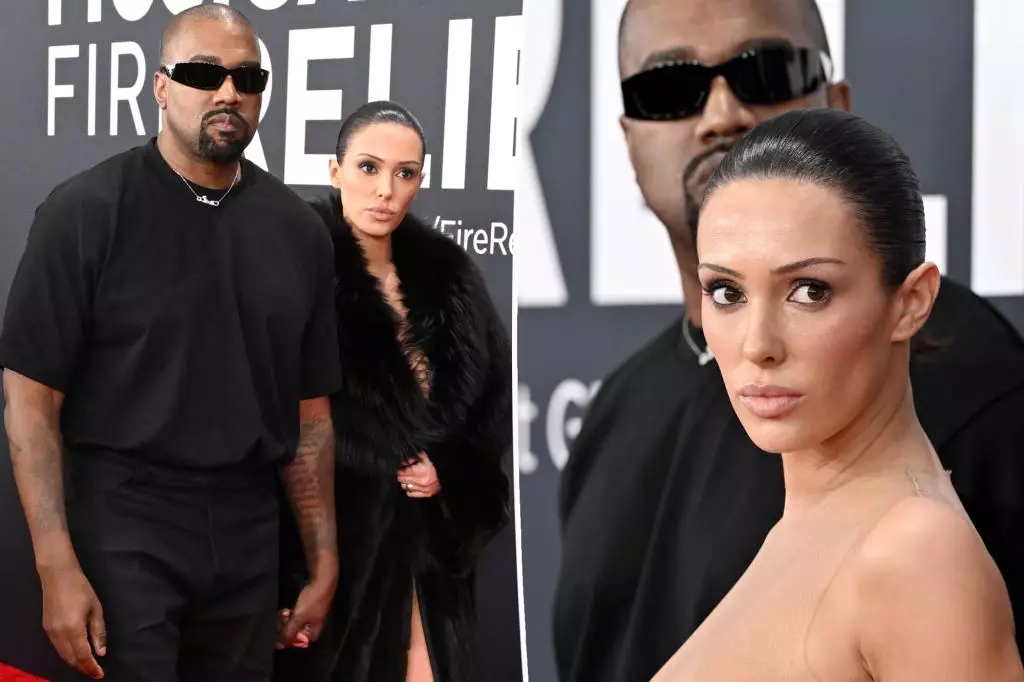Kanye West, known for his unyielding self-assurance, continues to cultivate a persona that often exceeds the boundaries of societal norms. A recent encounter with paparazzi highlighted his audacious spirit as he boasted about overcoming the Grammy Awards. This kind of bravado is par for the course for the 47-year-old artist, who appeared with wife Bianca Censori, flaunting an openly defiant attitude that is characteristic of his public persona. West’s penchant for theatrics was evident as he engaged with photographers, proclaiming, “We beat the Grammys,” as Censori laughed, a moment that encapsulates their shared affinity for spectacle.
The couple’s appearance was not without controversy. Censori, aged 30, turned heads at the Grammy Awards by unveiling a bold and transparent outfit that left little to the imagination. Her choice to step onto the red carpet draped in a black fur coat before shedding it to reveal her “invisible dress” has provoked a wide array of reactions, from admiration to outrage. The accompanying discussion surrounding her outfit speaks volumes about societal views on femininity, autonomy, and the performances women are expected to navigate in public spaces. Indeed, Censori’s decision to wear such an attention-grabbing outfit went beyond mere fashion; it turned into a powerful statement that ignited dialogues about women’s empowerment versus objectification.
However, not everyone viewed this audacious fashion choice positively. Critiques emerged, underscoring concerns that such exhibitions can perpetuate damaging stereotypes. Photographer Chiara Glionna labeled Kanye’s promotion of Censori’s transparent clothing as “deeply unsettling,” indicating a discomfort with how women can become focal points in power dynamics. This backlash raises an important question: can women truly express their individuality and creativity, or does the dominating gaze of society reduce them to mere spectacles?
It is essential to consider whether Kanye West is exploiting Censori’s boldness as a marketing strategy for his Yzy designs. After the awards show, Censori wore a sheer bodysuit at an afterparty, further emphasizing the intertwining of their personal relationship and professional ambitions. West’s ability to harness controversy for commercial benefit has been proven time and time again, and this instance seems no different. By using Censori’s choice of attire as a promotional vehicle, he blurs the line between artistic expression and brand marketing. This raises concerns about the ethical dimensions of such actions and the ramifications for public perception of women in the entertainment industry.
Amidst all the glitz and glamor, it is crucial to consider the broader implications of such acts. As public figures, are West and Censori engaging in free expression, or are they inadvertently reinforcing harmful stereotypes? The question lies at the heart of contemporary debates about the intersection of celebrity culture, gender dynamics, and societal expectations. While the couple seems unfazed by critics, there is an undeniable responsibility that comes with their platform.
Kanye West and Bianca Censori’s recent public appearances encapsulate a complicated mix of confidence, commercialism, and social commentary. Their story challenges us to evaluate our perceptions of self-expression, influence, and the price of fame in a society all too eager to digest spectacle.

